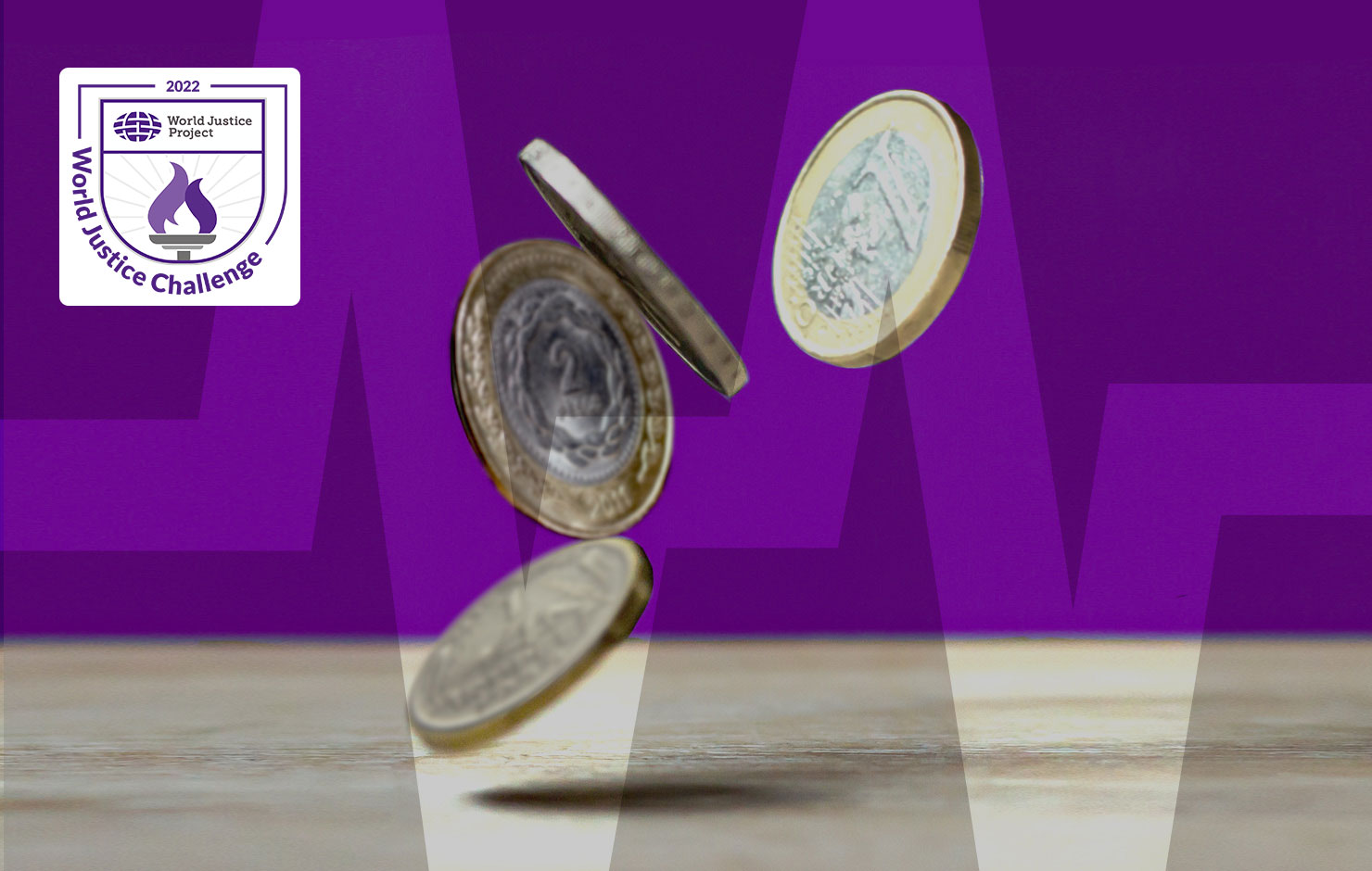
Problem Statement
The World Justice Challenge 2022: Building More Just Communities seeks to identify, recognize, and promote good anti-corruption and open government practices and high-impact projects and policies that help ensure the path of recovery from COVID-19 is just and that progress toward achieving the SDGs gets back on track.
Corruption poses a grave and fundamental threat to the rule of law. Corrupt practices weaken judicial integrity, erode trust in public institutions, and undermine the application of accessible and impartial justice. These practices typically go hand-in-hand with opaque and unaccountable governance, whereby public resources for essential goods and services are diverted for private gain. As these resources disappear to corruption, barriers to the fulfillment of fundamental rights and human development multiply, with particularly harmful impacts for marginalized communities. Discrimination and corruption are often mutually reinforcing, as discrimination enables and drives corruption in ways that deepen inequality and obstruct equitable access to justice.
The COVID-19 pandemic has heightened these corruption risks. Governments have mobilized massive resources to respond to health and economic crises, while at the same time enacting emergency procurement procedures and suspending corruption prevention and enforcement mechanisms. Each of these measures has increased the risk for corruption, fraud and waste. Even prior to the pandemic, the health sector had a serious corruption problem. In a 2019 report, Transparency International estimated that corruption in the health sector costs $500 billion per year globally. This contributes to the already staggering economic consequences of corruption. Corrupt practices such as bribery, tax evasion, theft of public funds, and other illicit financial flows cost developing countries approximately $1.26 trillion per year.
Collectively, corruption’s consequences have detrimental implications for achieving the Sustainable Development Goals (SDGs) and their promise to “leave no one behind.” SDG 16, with its targets for reducing bribery and strengthening institutions, creates an explicit link between corruption, just and inclusive societies, and the conditions for meeting all 17 SDGs. As we rebuild towards fairer and healthier communities, it will be critical to prioritize evidence-based strategies to strengthen open and accountable governance and curb corruption.
Guidelines for Applicants
The World Justice Challenge encourages entries that address systemic corruption and open government challenges, including, but not limited to:
- Vetting suppliers, tracking financial flows, disclosing beneficial ownership, and supporting public complaint or whistleblower mechanisms
- Ensuring the open publication of public contracts
- Ensuring openness of government distribution of economic recovery and social support programs
- Strengthening mechanisms that provide oversight and accountability for elected and appointed officials, including judges
- Protecting the right to information and the proactive publication of government data
- Strengthening the ability of independent media to track and report on corrupt practices
- Supporting citizen participation in public decision making at the local and national levels
- Ensuring fiscal openness, including budget and expenditure data transparency and oversight mechanisms
- Ensuring accountability of public works, expenditures and infrastructures
- Using innovative techniques for identifying, investigating and documenting corruption, including through the use of data analytics